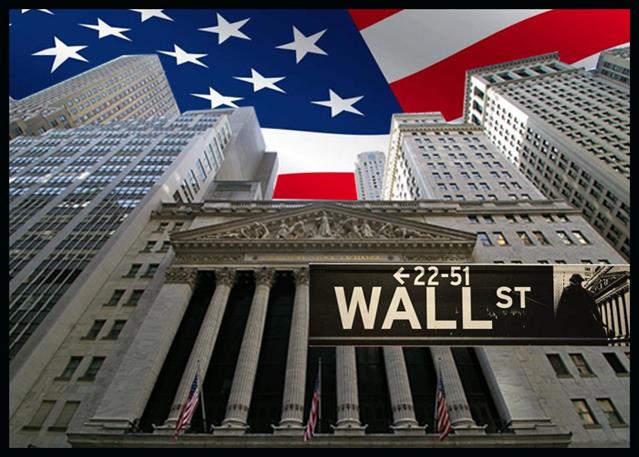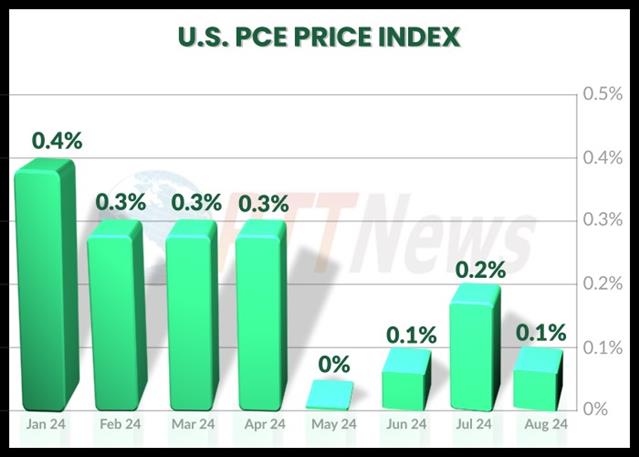Consumer prices in the U.S. crept up in line with economist estimates in the month of August, according to closely watched data released by the Commerce Department on Friday.
The Commerce Department said its personal consumption expenditures (PCE) price index inched up by 0.1 percent in August after rising by 0.2 percent in July.
The uptick, which matched expectations, came as a 0.2 percent increase in prices for services was partly offset by a 0.2 percent decrease in prices for goods.
The report also said the annual rate of growth by the PCE price index slowed to 2.2 percent in August from 2.5 percent in July. Economists had expected the pace of growth to slow to 2.3 percent.
Prices for goods slid by 0.9 percent compared to the same month a year ago, while prices for services surged by 3.7 percent year-over-year.
Excluding food and energy prices, the core PCE price index also edged up by 0.1 percent in August after increasing by 0.2 percent in July. Core prices were expected to rise by another 0.2 percent.
Meanwhile, the Commerce Department said the annual rate of growth by the core PCE price index accelerated to 2.7 percent in August from 2.6 percent in July, in line with estimates.
“The August PCE report supports the Fed’s decision to go big on September 18, although the core year-over-year at 2.7% suggests that another round of 50 basis points needs to come under careful scrutiny unless the labor market suggests weakness,” said Quincy Krosby, Chief Global Strategist for LPL Financial.
She added, “Although the Fed cannot declare complete victory on inflation, today’s report – with 2.2% on the year-over- year headline – underscores that overall inflation continues to move decisively in the right direction.”
The readings on inflation, which are said to be preferred by the Federal Reserve, were included in the Commerce Department’s report on personal income and spending.
The report said personal income rose by 0.2 percent in August after climbing by 0.3 percent in July. Economists had expected personal income to increase by 0.4 percent.
Disposable personal income, or personal income less personal current taxes, increased by 0.2 percent for the third straight month.
Personal spending also edged up by 0.2 percent in August following a 0.5 percent increase in July. Spending was expected to rise by 0.3 percent.
Excluding price changes, personal spending inched up by 0.1 percent in August after climbing by 0.4 percent in July.
The report also said personal saving as a percentage of disposable personal edged down to 4.8 percent in August from 4.9 percent in July.















